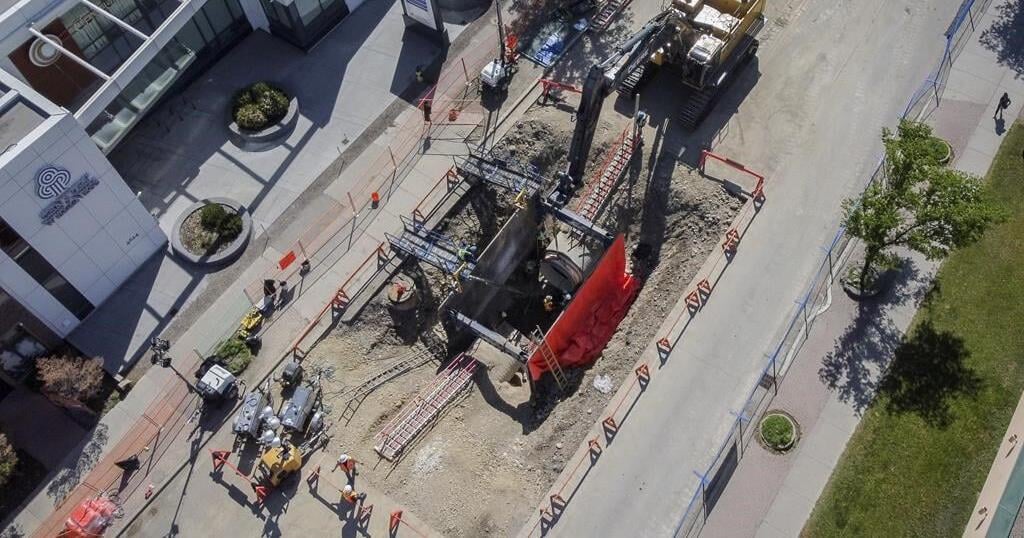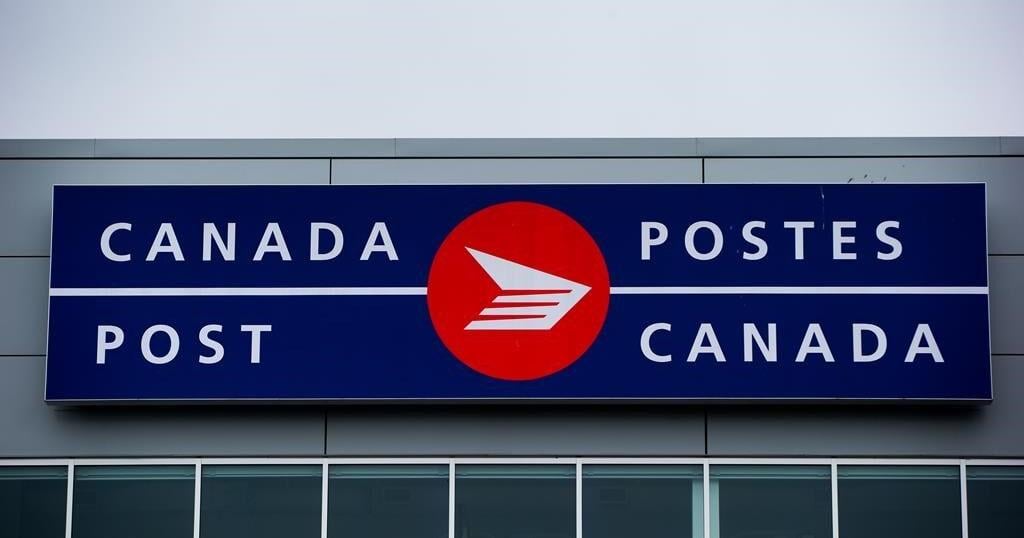CALGARY – Weeks of water restrictions in Calgary could be eased in a matter of days, the city’s mayor and officials say, if the water system holds while crews turn valves back on after they were closed in early June to repair a burst feeder main.
Mayor Jyoti Gondek told a media briefing Sunday that water tested by Alberta Health Services following flushing of the repairs exceeded quality guidelines, meaning crews are now proceeding to the next step — re-establishing pressure to certain areas of the water-supply system.
But she warns that step involves the greatest risk, so she says valves and pumps are being turned on slowly to prevent straining the system and causing new leaks.
Francois Bouchard, Calgary’s infrastructure director, says with each increase in pressure, crews will pause to monitor for breaks and will be ready to go if there are any.
Bouchard says easing indoor water-use restrictions would be the priority, and if all goes well, he believes the city could start to ease restrictions within three to five days.
Gondek and other city officials say residents must keep conserving water until then to avoid taps, or fire hydrants, running dry.
“We are at the final and riskiest stage of water restoration right now. Now is the time to keep up your tremendous water-saving efforts,” Gondek said Sunday.
“Anyone with pipeline experience will tell you that this stage is risky and we are not out of the woods yet. Risks still remain.”
Gondek said an overnight fire that swept through a bar and restaurant shows the importance of conserving water. Calgary fire officials said in a news release that fighting the blaze consumed 1.2 million litres of water.
There were no reported injuries.
Water-use data for Saturday showed the entire city used 447 million litres that day and 460 million litres on Friday. But for much of last week, water use crept upward and reached 500 million litres on Thursday, prompting a plea from Gondek for people to keep up their water-conservation efforts.
Since the pipe break on June 5, Calgarians have been asked to reduce their water use by a quarter as repairs are conducted to the main, which carried 60 per cent of the city’s water.
Those restrictions were extended after repair crews found and repaired another five spots in the pipe that were nearing failure.
Crews have been scrambling to have the line running before the city’s major summer festival, the Calgary Stampede, begins July 5.
Almost every day since the pipe break, Gondek has asked Calgary’s 1.6 million residents and those in surrounding communities to restrict their indoor water use by flushing their toilets less often, taking three-minute showers and doing fewer loads of laundry.
Outdoor water use has been banned. Residents have been encouraged to rely on rainwater for their gardens.
Gondek has promised a wide-ranging examination of the city’s underground infrastructure.
This report by The Canadian Press was first published June 30, 2024.

























